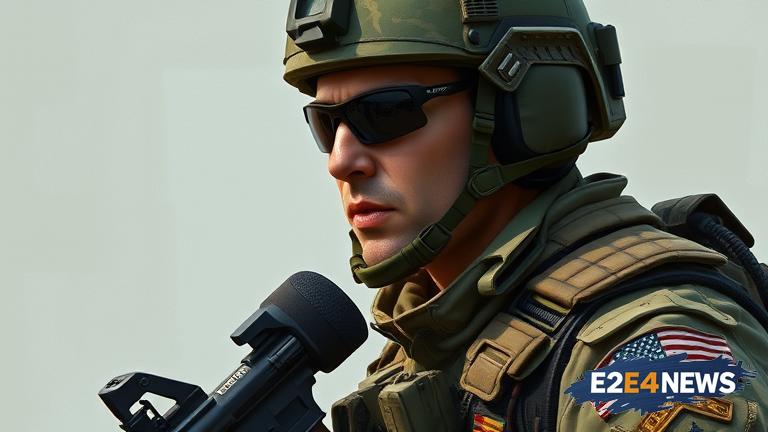The US special operations community is facing a critical challenge in the realm of information warfare, with a top leader issuing a stark warning over the inadequate funding of these capabilities. According to the special operations leader, the current funding levels are insufficient to support the development and deployment of effective information warfare tools, leaving the US vulnerable to adversaries who are rapidly advancing their own capabilities in this domain. The warning comes as the US military is increasingly recognizing the importance of information warfare in modern conflict, where the ability to shape and influence the narrative can be a decisive factor in achieving strategic objectives. The special operations leader emphasized that information warfare is not just a niche capability, but a critical component of national security, and that the US must invest more in this area to remain competitive. The leader also noted that the US is facing a range of challenges in the information environment, from disinformation and propaganda to cyber attacks and electronic warfare, and that a more robust information warfare capability is needed to counter these threats. Furthermore, the leader argued that the US must develop a more integrated approach to information warfare, one that brings together different stakeholders and capabilities to achieve a unified effect. This will require greater investment in areas such as artificial intelligence, machine learning, and data analytics, as well as more effective coordination between different agencies and departments. The special operations leader also emphasized the need for a more nuanced understanding of the information environment, one that takes into account the complex and dynamic nature of modern conflict. This will require a greater emphasis on intelligence, surveillance, and reconnaissance, as well as more effective use of social media and other digital platforms to shape and influence the narrative. In addition, the leader noted that the US must develop a more effective approach to countering disinformation and propaganda, one that combines diplomatic, economic, and military measures to achieve a unified effect. The warning from the special operations leader comes as the US is facing a range of challenges in the information environment, from Russia’s use of disinformation and propaganda to China’s development of advanced cyber and electronic warfare capabilities. The US military is also facing challenges in its own information warfare capabilities, including a lack of funding and resources, as well as a need for greater coordination and integration between different stakeholders and capabilities. Despite these challenges, the special operations leader remains optimistic about the potential for the US to develop a more effective information warfare capability, one that combines the best of US military power with the agility and innovation of the private sector. The leader also emphasized the importance of international cooperation and partnership in the realm of information warfare, noting that the US must work closely with allies and partners to develop a more unified and effective approach to countering global threats. In conclusion, the warning from the special operations leader highlights the critical importance of information warfare in modern conflict, and the need for the US to invest more in this area to remain competitive. The US must develop a more integrated approach to information warfare, one that brings together different stakeholders and capabilities to achieve a unified effect, and that combines the best of US military power with the agility and innovation of the private sector. With the right approach and investment, the US can develop a more effective information warfare capability, one that supports national security and global competitiveness, and that helps to shape and influence the narrative in a rapidly changing world. The US special operations community is well-placed to lead this effort, given its expertise and experience in the realm of information warfare, and its ability to operate in a rapidly changing and dynamic environment. However, the US must also recognize the need for greater coordination and integration between different stakeholders and capabilities, as well as a more nuanced understanding of the information environment and the complex and dynamic nature of modern conflict. By working together and investing in the right capabilities, the US can develop a more effective information warfare capability, one that supports national security and global competitiveness, and that helps to shape and influence the narrative in a rapidly changing world. The special operations leader’s warning is a call to action, one that highlights the critical importance of information warfare in modern conflict, and the need for the US to invest more in this area to remain competitive. The US must take this warning seriously, and work to develop a more effective information warfare capability, one that combines the best of US military power with the agility and innovation of the private sector. This will require a greater emphasis on intelligence, surveillance, and reconnaissance, as well as more effective use of social media and other digital platforms to shape and influence the narrative. It will also require a more nuanced understanding of the information environment, one that takes into account the complex and dynamic nature of modern conflict, and the need for greater coordination and integration between different stakeholders and capabilities. By working together and investing in the right capabilities, the US can develop a more effective information warfare capability, one that supports national security and global competitiveness, and that helps to shape and influence the narrative in a rapidly changing world.





